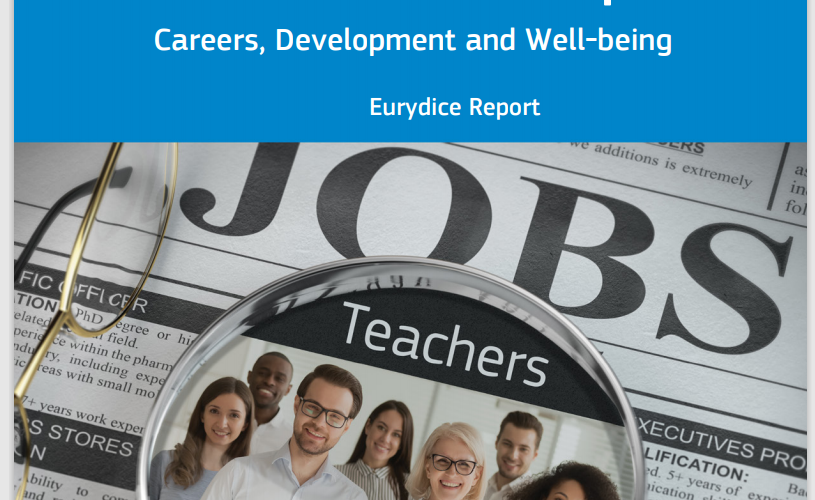
“Teachers are the front-line workers in education” says Commissioner Gabriel
Gerry O'Sullivan
Posted: 28 March, 2021
“Having motivated teachers is one of the essential prerequisites of a successful education system in which students from different backgrounds can flourish and reach their full potential” comments EC Commissioner for Innovation, Research, Culture, Education and Youth, Mariya Gabriel in her foreword to the Eurydice Report on Teachers in Europe: Careers, Development and Well-being.
The Commissioner believes that the COVID crisis has underlined the need for more co-operation across Europe in the area of further strengthening the teaching profession. She adds “This crisis (COVID) has shown the strengths of our education systems, but also weaknesses, and has taught us important lessons on how to adapt to the current context. The crisis required us to improve digital education and equip teachers with relevant and adequate skills. The crisis has also stressed the need to invest in joint efforts and further reinforce the amazing spirit of our education community across Europe. The more we cooperate, the more we can create new exciting opportunities. Among such opportunities are the Erasmus Teacher Academies and eTwinning, and teachers are essential for both initiatives. Erasmus Teacher Academies create communities of practice, notably on initial teacher education and continuous professional development, while eTwinning is a community in which teachers can learn how to adopt innovative teaching methods and support students while at home.”
Among the areas that the Report focusses on is the transnational mobility of teachers. The Report stresses the importance of this aspect in the professional development of teachers. “It is important for several reasons, as revealed by several studies on the impact of teachers’ participation in EU-funded or national programmes involving a professional experience abroad. For those involved, the experience offers first-hand contact with a different education system, in which teaching approaches and organisation may differ (European Parliament, 2008). It is a unique opportunity for teachers to reflect on their own ways of teaching (Maiworm et al., 2010) and to exchange views about their experiences of national curricula, student assessment, use of pedagogical tools, autonomy, and working conditions with colleagues abroad (European Commission, 2012). Transnational mobility may also help teachers overcome scepticism towards other teaching methods or strategies, by providing them with a direct opportunity to observe the impact of these strategies on students. This experience may, in turn, motivate them to gain fresh skills and participate in continuing professional development (European Parliament, 2008). Finally, working visits by teachers to a country whose main language is not their mother tongue is likely to help them improve their language skills (Maiworm et al., 2010), which is of special importance to those teaching modern foreign languages.”
Eurydice Report: Teachers in Europe: Careers, Development and Well-being (2021)


